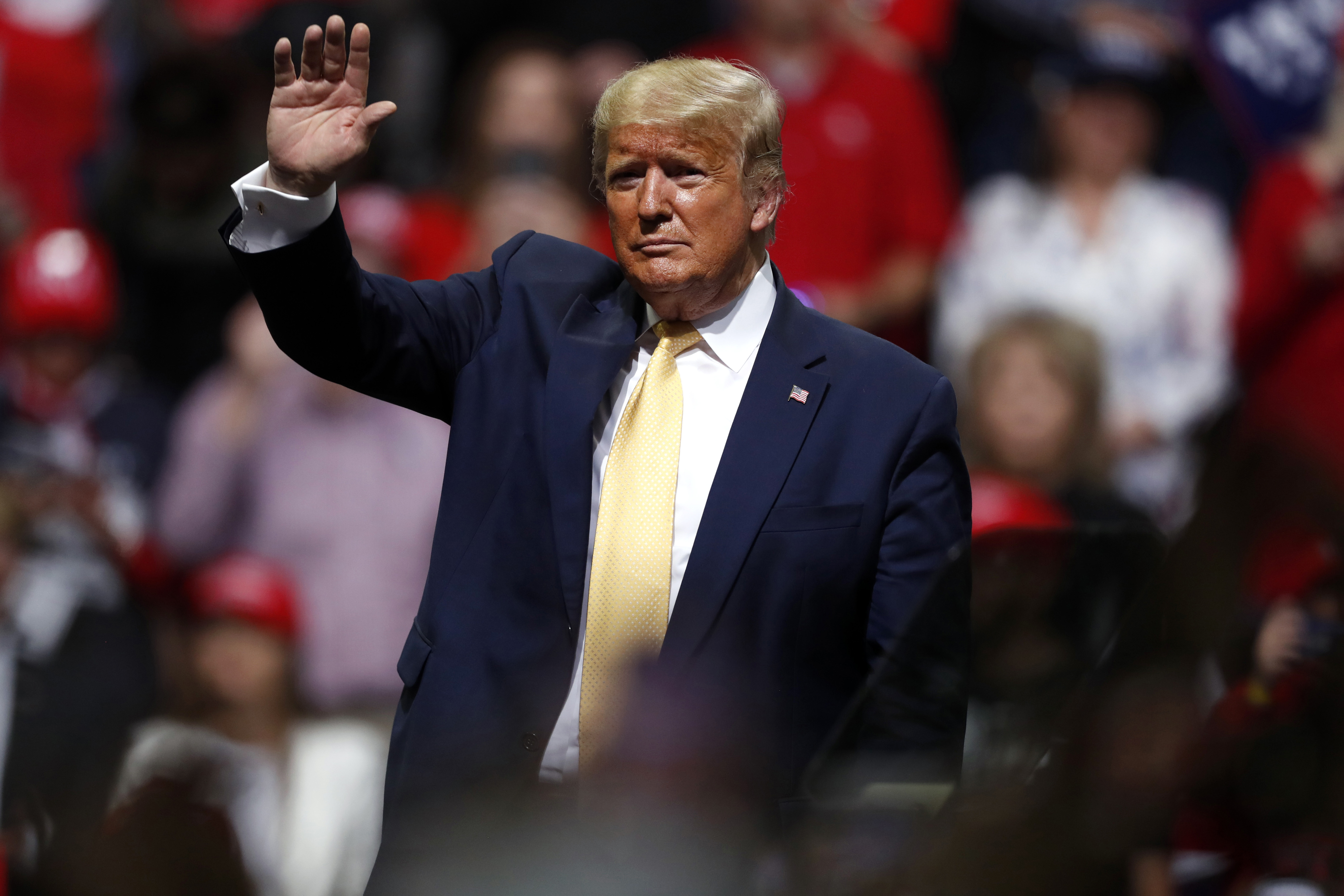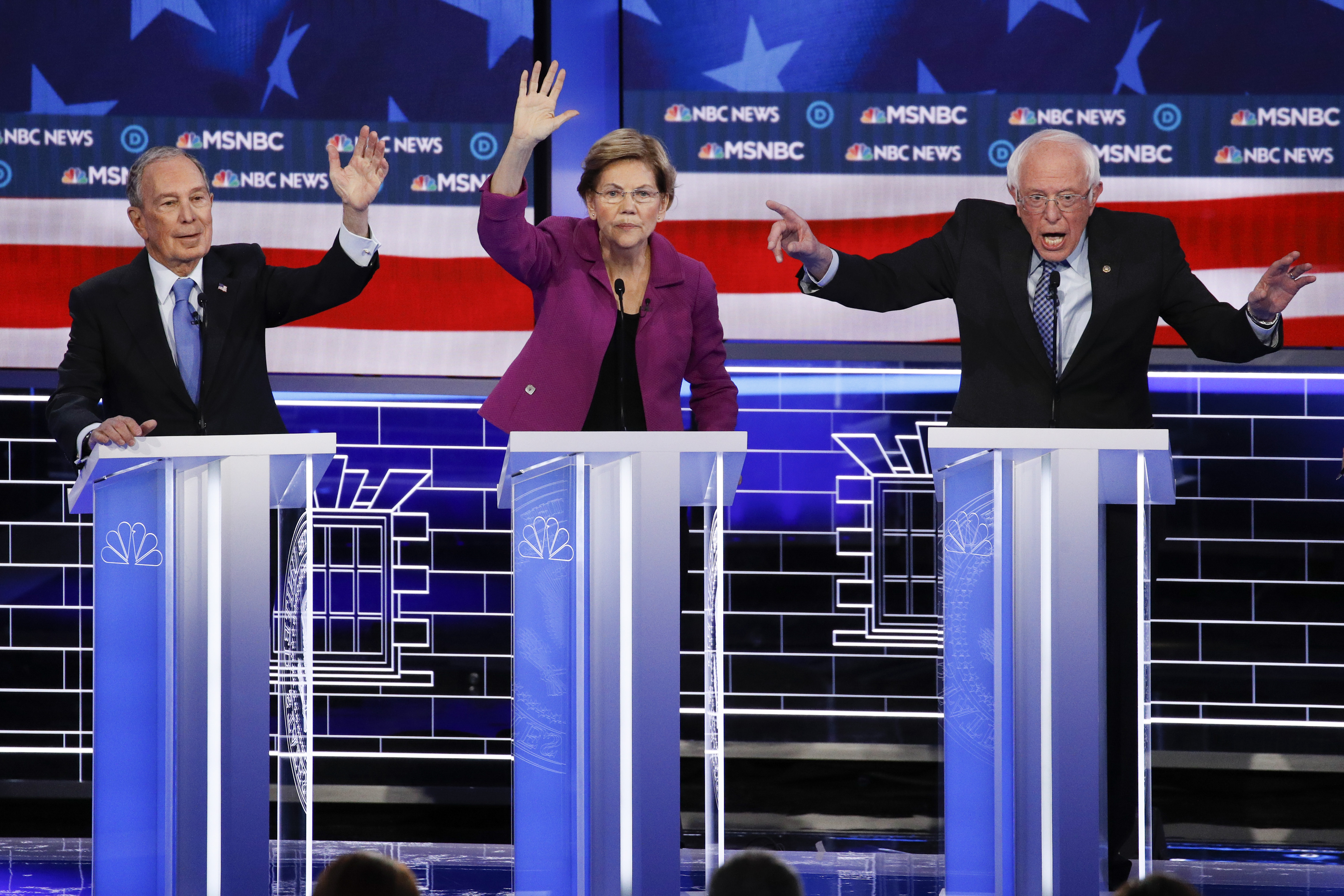
Elizabeth Warren enters the final stretch before Saturday's Nevada Democratic caucus with a new and enviable but nonetheless critical mission: capitalizing on a standout performance during Wednesday's presidential debate.
The Massachusetts senator took a leading role in blasting rival Mike Bloomberg over his previous comments about women, his past support of policing programs that disproportionately targeted minorities and for deploying his vast personal wealth to, as she characterized it, buy the White House. Warren also hit fellow progressive and Vermont Sen. Bernie Sanders and Minnesota Sen. Amy Klobuchar over health care, and had multiple, stinging criticisms for former Vice President Joe Biden and Pete Buttigieg, the former mayor of South Bend, Indiana.
Those takedowns prompted a fundraising surge for Warren and revived interest in a campaign that has been flagging since disappointing finishes earlier this month in Iowa and New Hampshire. She finally displayed a sense of political urgency upon which her campaign may now depend — the trick will be to keep it going.
Get Tri-state area news delivered to your inbox.> Sign up for NBC New York's News Headlines newsletter.
"The debate performance that she had last night will certainly help restore confidence in a lot of folks who may have been listening to the punditry, and now they will fall in love with her all over again," said Wendy Brawley, a South Carolina state representative who has endorsed Warren.
But for all that energy, it's still not clear where Warren might actually win. A sprawling political infrastructure didn't help her in Iowa, nor did New Hampshire's being basically in her political backyard. She is not favored in Nevada, where nearly 75,000 people participated in early voting and missed her strong debate performance.
South Carolina holds its primary next week and then comes "Super Tuesday" on March 3, when 14 states vote. With the possible exception of Massachusetts, which is among them, there appear to be few slam-dunks for Warren.
Pollster John Zogby called Warren's debate performance "striking" but said it's unlikely to make her political road any less rocky long term.
"Last night it worked," Zogby said. "Beyond that? No. It's harder to see."
Decision 2020
In the meantime, she beefed up her campaign schedule in Nevada on Thursday while also appearing on ABC's "The View" and holding a telephone town hall with voters in South Carolina — hoping to prolong any immediate bump the debate provides.
There's another debate in Charleston, South Carolina, on Tuesday, which could give Warren an opportunity to produce a repeat performance even as Bloomberg and the other candidates will likely be better prepared to defend themselves.
That's why lasting political momentum is so important. Democratic strategist Rebecca Katz said, "Warren gave her supporters real hope."
"Many voters in the later states have been frustrated that the top candidates are being decided by just two overwhelmingly white states," Katz said.
Democratic strategist L. Joy Williams noted that other 2020 candidates saw their online buzz, polling and fundraising spike after breakout debates, only to have it all eventually evaporate. The most notable example was California Sen. Kamala Harris and her lashing last summer of Biden over his past criticism of federally mandated school busing. That turned out to be the high point for a campaign that ended in December.
"I think Warren had a great night. I think, from a fundraising perspective, she will have a great night," Williams said. "The real question will be if her support and engagement translate on the ground."
Still, her debate performance left Warren's inner circle feeling as pleased as they were during the heady days of last summer and fall when its candidate rode a message of economic populism, built on proposals including a wealth tax targeting people like Bloomberg, to become a national front runner along with Biden, Sanders and Buttigieg.
Warren's campaign initially tweeted that it had its best ever fundraising day on Wednesday, raking in $2.8 million. That edged the $2.7 million in donations raised by Sanders, which his campaign said was its largest haul on a debate day. But a Warren campaign spokesman said early Friday morning that the campaign had raised around $17 million so far in February, including an impressive total of about $5 million on debate night.
Warren had pulled advertising from South Carolina and the cash infusion could give her more options on when and where to get on the air before Super Tuesday.
She may need it. As of the second week of this month, Warren wasn't spending anything on television ads in top "Super Tuesday" states. By contrast, Bloomberg at that time had already spent nearly $33 million on television advertising just in California, the largest prize on the Super Tuesday calendar. Billionaire hedge fund manager and environmentalist Tom Steyer was up to more than $16 million and Sanders was close to $3 million.
Warren’s rivals were also spending aggressively on TV advertising in several more Super Tuesday states, including Texas, Minnesota, North Carolina, Tennessee and Utah.
Warren's supporters are largely shrugging that off, though. They note that many of the same national airwaves where political observers questioned whether Warren's fundraising would dry up after Iowa and New Hampshire are now buzzing about how well she did in the Las Vegas debate. And there could be more where that came from, they say.
"The free media coverage of Warren skewering Bloomberg will exponentially be more valuable than any TV ad buy," said Adam Green, co-founder of the Progressive Change Campaign Committee. "Elizabeth Warren the fighter who names villains and challenges power was on full display in the Las Vegas debate, and there's every expectation that she'll continue that in the future."



